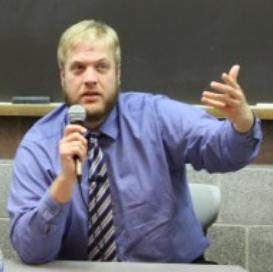A Quote by Phil Cousineau
Atonement is a journey of healing that moves from the pain between a victim and an oppressor, through forgiveness, the making of amends, the relief of anger and compassion for the victim, to deep reconciliation.
Related Quotes
If you did something in 1975 that you deeply regret and that you now can recognize as having been profoundly irresponsible, for example, the only way to be lifted out of deep regret and the pain over it is through atonement - through the kind of remorse that leads to genuine atonement, the making of amends, and forgiveness of self and others.
When someone hurts you or harms you, even if it is a deep wound, forgive them. Forgive them NOT for their sake, but as a sign of gratitude to Allah. Why you ask? For making you the victim and not the oppressor. There is no crime in being a victim, rather it brings you closer to Allah and rids you of sins. But as for the oppressor, they'll have to face their Lord one day. So in reality, they are their own greatest victims.
Being a victim doesn't take much. There are built-in excuses for failure. Built-in excuses for being miserable. Built-in excuses for being angry all the time. No reason to trying to be happy; it's not possible. You're a victim. Victim of what? Well, you're a victim of derision. Well, you're a victim of America. You're a victim of America's past, or you're a victim of religion. You're a victim of bigotry, of homophobia, whatever. You're a victim of something. The Democrats got one for you. If you want to be a victim, call 'em up.
To answer oppression with appropriate resistance requires knowledge of two kinds: in the first place, self-knowledge by the victim, which means awareness that oppression exists, an awareness that the victim has fallen from a great height of glory or promise into the present depths; secondly, the victim must know who the enemy is. He must know his oppressor's real name, not an alias, a pseudonym, or a nom de plume!
When you're a victim, you automatically have a built-in excuse for failure. When you are a victim, it's always somebody else's fault. When you're a victim, success is not possible. When you are a victim of something, you are acknowledging that you are as far as you're gonna get, and you can't get any further, because there are more powerful forces arrayed against you than the force of yourself against it.
While it is tempting to believe that you are the victim of certain people or forces beyond your control, A Course in Miracles teaches you to recognize that you are not a victim. Through the grace of God, you are lifted above and beyond any forces-internal or external-that threaten to limit you. Knowing you're not a victim is a major form of personal empowerment.






























